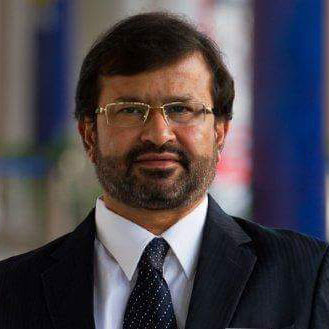Conference: 12 April 2023 (Wednesday)
The APREA India Annual Conference: India Next zooms in on what many are considering the next economic superpower in the world stage.
India has been reaping great benefits from a sound regulatory environment, economic liberalisation, a rapidly growing working population, and the realignment of global supply chains.
The coordinated approach of the public and private sectors in the real assets industry has also contributed to robust macroeconomic stability, making India a leading destination for investments.
Join us as we gather institutional investors, investment managers, asset owners, regulators, and policy makers in an engaging and insightful conference.
If you are interested to be a delegate or sponsor, please email sameeksha.sharma@aprea.asia
DELEGATE PASS (CONFERENCE & DINNER)
| Cost | |
| APREA Members | USD 699.00 |
| Non-Members | USD 1,199.00 |
Programme

Cheryl D'Souza-Waldiya
Associate Vice President - Corporate Communications
K Raheja Corp
Registration
Welcome Remarks

Sigrid Zialcita
CEO,
APREA
Keynote Address

Neel Raheja
Chairman
APREA India Chapter
President
K.Raheja Corporation
Tea/Coffee Break
Keynote Presentation: India Market Outlook:

Ritwik Bhattacharjee
Chief Investment Officer
Embassy Office Parks
Panel Session : REITs - An Alternate Asset class, a growth driver and how do we make it more attractive?
REITs in India have been a relatively new concept and were introduced in the Indian market in March 2020. Since then, the growth has been positive.
The size of the REITs market in India in 2023 is expected to grow significantly given the sustained growth in the real estate sector. Industry experts believe that REITs could be worth Rs.1.5 trillion by 2023, up from Rs.1 trillion in 2019. This growth is likely to be driven by increased investment in the sector by foreign investors, as well as more developers opting to list their projects on REITs. In order to grow the share of REITs in the asset class pie, the Indian government needs to incentivize real estate developers and investors to invest in REITs and provide a framework that needs to help increase investor confidence in the asset class, which will in turn help to attract more capital into the sector.
REITs in India have been a relatively new concept and were introduced in the Indian market in March 2020. Since then, the growth has been positive. The size of the REITs market in India in 2023 is expected to grow significantly given the sustained growth in the real estate sector. Industry experts believe that REITs could be worth Rs.1.5 trillion by 2023, up from Rs.1 trillion in 2019. This growth is likely to be driven by increased investment in the sector by foreign investors, as well as more developers opting to list their projects on REITs. In order to grow the share of REITs in the asset class pie, the Indian government needs to incentivize real estate developers and investors to invest in REITs and provide a framework that needs to help increase investor confidence in the asset class, which will in turn help to attract more capital into the sector.

Amit Diwan
Country Head
Hines India

Kranti Mohan
Partner
Cyril Amarchand Mangaldas

Shailendra Sabhnani
Senior Vice President, Capital Markets & Treasury
Real Estate
Brookfield Asset Management

Vinod Rohira
CEO
Mindspace Business Parks REIT

Somy Thomas
Managing Director, Valuation & Advisory, India
Co-head, Land & Capital Markets, India
Cushman & Wakefield
Lunch Break
Panel Session : Winds of Change: The Changing Regulatory Environment of India
Top legal experts discuss how the Indian government has taken several measures to promote ease of doing business and attract foreign direct investment (FDI) in infrastructure and real estate with the simplification of regulatory framework and establishment of an open and transparent investment regime to make it easier for foreign investors to enter the Indian market.
Furthermore, the government has taken steps to improve the investment climate in the infrastructure and real estate sectors by introducing several policy initiatives. It has allowed 100% FDI in the construction development sector and removed restrictions on foreign investment in the real estate sector. It has also established the Real Estate Regulatory Authority (RERA) to ensure transparency and protect the interests of buyers and developers. The government has also established the Infrastructure Investment Trusts (InvITs) to attract long-term investment into the infrastructure sector. The InvITs are regulated by the Securities and Exchange Board of India (SEBI) and are designed to provide a platform for investors to pool their funds and invest in infrastructure.

Shagoofa Rashid Khan
Group General Counsel and Head of Corporate Affairs,
National Investment and Infrastructure Fund (NIIF)

V. Lakshmikumaran
Managing Partner
Lakshmikumaran & Sridharan

Yash J Ashar
Partner
Cyril Amarchand Mangaldas
Panel Session : InVITs in India - Pegging InVITs as the Heroes of the India Economy!
InVITs- 2017-2022 - 5 years and Counting - here's what comes next
InVITs offer investors an attractive alternative asset class to invest in, with the potential for high returns and tax efficiency. With the government's focus on infrastructure development and the various tax incentives, the future of InVITs in India looks promising.
Estimates suggest that the InVIT market could be worth anywhere between $20-30 billion by 2023. InVITs have the potential to revolutionize Indian infrastructure investments, making them more accessible to a wider range of investors.
InVITs could also reduce the risk associated with infrastructure investments and make them more attractive to investors. In the long run, InVITs could provide a more efficient way to mobilise capital for infrastructure projects and create an efficient capital market.

Amar Merani
Chief Investment Officer
and Head of Real Assets
IIFL Asset Management

Ami Momaya
Director
KKR

Meghana Pandit
Chief Investment Officer
IndiGrid

Pawan Kant
Chief Executive Officer
IndInfravit Trust

Gaurav Karnik
Partner And National Leader Real Estate
Ernst & Young, India
Keynote Address on ESG

Sriram Khattar
Managing Director,Rental Business,
DLF Group
FIRESIDE CHAT: ESG the Way Forward, Playing Our Role Responsibly for a Healthier Tomorrow
ESG (Environmental, Social, and Governance) is gaining momentum in the real estate and infrastructure development industry globally and in India. This is due to the increasing awareness of the need to incorporate sustainability into business operations and the growing demand from investors for organizations to be more transparent about their ESG performance.
In India, the real estate and infrastructure development industry is embracing ESG principles by investing in green building technologies, incorporating sustainability into their building designs, and investing in renewable energy sources. The government has also been proactive in encouraging the industry to adopt ESG principles. This includes the introduction of various incentives and tax breaks for organizations that incorporate ESG into their operations.
Additionally, the Indian government has also recently released a draft proposal to include ESG criteria in its public procurement processes. This will ensure that only those organizations that meet certain ESG standards are eligible to bid for government projects. The move is expected to further encourage the adoption of ESG in the real estate and infrastructure development industry.
Overall, the momentum behind the adoption of ESG principles in the real estate and infrastructure development industry is growing, and India is well on its way to becoming a leader in this field.

Gautam Dey
Executive Director Operations
DLF Rental Business

HC Vinayaka
VP - Technical, EHS & Sustainability
ITC Limited – Hotels Division

Rajnish Gupta
Associate Partner
Tax & Economic Policy Group
EY

Neeraj Bansal
Co-Head & COO - India Global
KPMG in India
Tea Break
FIRESIDE CHAT: Calm In the Storm: the India Perspective
The current contrast that persists in global economies and India as a market pertaining to the economic environment and investor sentiment

Alessandro Fiascaris
Senior Vice President, Head of Investments – Asia Pacific
Oxford Properties

Sanjay Dutt
MD & CEO
Tata Housing Development Co. Ltd and Tata Realty & Infrastucture Ltd.

Sigrid Zialcita
CEO,
APREA
Panel Session 5: Institutional Investors: First Mover Advantage
The journey of institutional investors who trusted the Indian Real estate and Infrastructure landscape and have experienced a positive growth in their wealth.
Since the early 2000s, large investments have helped spur an impressive amount of growth in the sector. This growth has been particularly pronounced in the residential real estate sector, with a surge in demand for high-end and luxury housing, particularly in urban areas.
At the same time, investments have also bolstered India’s infrastructure sector. These investments have been instrumental in the development of new roads, bridges, airports, and other transportation networks, as well as the construction of power plants and other energy infrastructure projects.
These investments have helped spur an impressive amount of growth in the sector, and have been instrumental in the development of new roads, bridges, airports, and other transportation networks, as well as the construction of power plants and other energy infrastructure projects.

Chanakya Chakravarti
Head of Indirect Strategies, Asia Pacific
Ivanhoé Cambridge

Hardeep Sachdeva
Senior Partner
AZB & Partners

Sandeep Lakhanpal
Managing Director
I Squared India Advisors Pvt. Ltd.

Gautam Mehra
Partner, PricewaterhouseCoopers Professional Services LLP, India
Closing
Networking Cocktails and Dinner
PLATINUM SPONSOR

GOLD SPONSOR

SILVER SPONSOR




BRONZE SPONSOR




